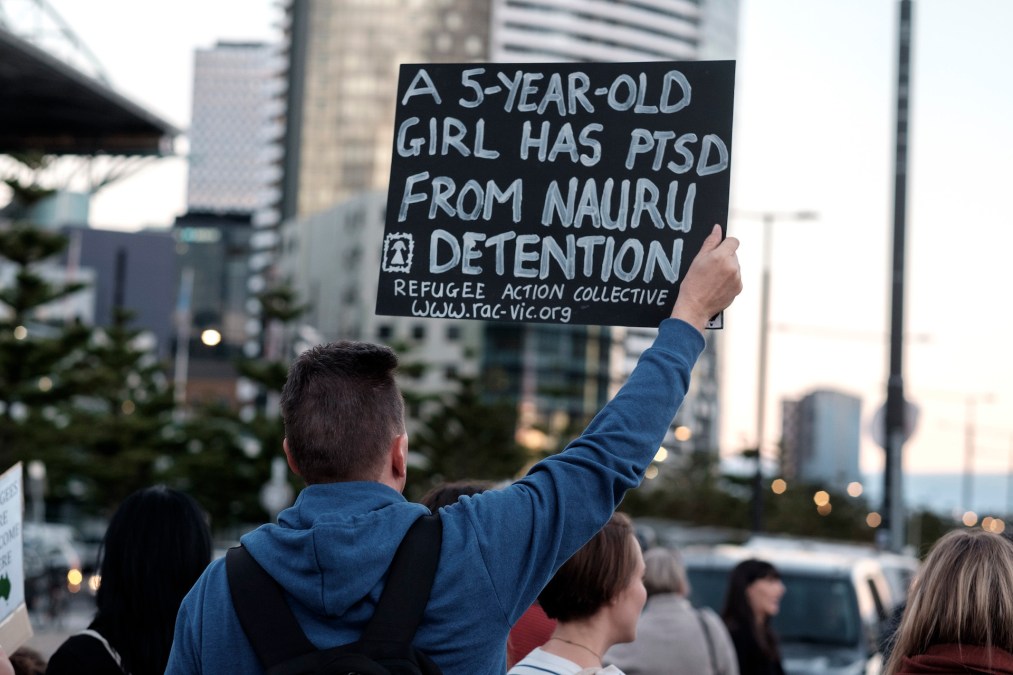Australian police unsuccessfully seek to have hosting company pull down leaked data website

An investigator with the Australian Federal Police this week asked an Icelandic hosting company to pull down a website dedicated to documenting hacker history, sharing information security educational resources and publishing materials from hackers.
The website, Enlace Hactivista, had earlier published a statement from a group of hackers going by the acronym “ACAB” (all cyber-cops are bastards) who claimed to have hacked nearly 286,000 emails from the Nauru Police Force they say exposes the horrific abuse and detainee treatment within the island nation’s asylum and refugee system. Nauru is an independent Pacific island nation and an offshore location where Australia processes asylum claims.
The hosting company, FlokiNET, said no.
“Dear Australian Federal Police,” the company tweeted Wednesday. “Nice try to shut down whistleblower websites but this will not be possible with the ones we host. The public has a right to know what’s happening in Nauru and you will not stop it.”
An email that Australian Federal Police cybercrime investigator Jim Astley sent to FlokiNET a few hours before the tweet said the agency was investigating the hack of the Nauruan Police email servers.
“We’d be grateful if you could take the website down on the basis that material published on this website originated from unlawful activity,” Astley wrote, according to the text of the email published by Enlace Hactivista.
Astley added that he was aware that Icelandic law protects anonymity and wasn’t seeking any additional information, and that his agency understands “the need for whistle-blower protections and free media, which are supported under Icelandic (and Australian law). However we believe that this website is enabling criminal activity, and therefore believe it is appropriate to take the website down.”
A FlokiNET representative told CyberScoop via email Thursday that the company “made it clear that we do not take action on foreign law enforcement requests in such cases” and any threats will be met with legal action. “We have zero tolerance for abuse of power by law enforcement and governments.”
Crikey, an Australian news outlet, reported Thursday that in the wake of the ACAB hack, additional emails were released — it’s unclear where from — showing that a top police official on the island said the hackers’ intent “is against the Australian government, to [cause] damage for the upcoming general election with the offshore processing centre here in Nauru.”
General elections are taking place in Australia May 21 and immigration is a contentious issue. The ACAB hackers asked that the “newly elected Australian government” end its policy of mandatory immigration detention and permanently close immigration detention facilities by the end of 2022.
The hackers said in their statement that they were motivated by the September 2021 deal that Australia signed with Nauru to keep the processing center open indefinitely. “So we decided to hack the Nauru Police Force,” the hackers wrote. “The Republic of Nauru has previously disputed reports of torture, sexual assault and child abuse on the island. Can they still dispute this when all their emails are out in the open? The things we saw and read made us sick.”
The proximity of the hack to the general election and the claims from the Nauruan police official of election interference mark the second election interference claim made in recent weeks.
On April 27 Australian Home Affairs Minister Karen Andrews told a local media outlet that the Chinese announcement of a security pact with the Solomon Islands in April was itself a form of election interference, designed to weaken the administration of conservative Prime Minister Scott Morrison.

